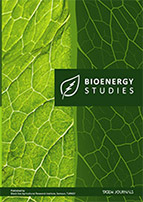Turkish Journal of Fisheries and Aquatic Sciences
2024, Vol 24, Num, 1 (Pages: TRJFAS24144)
Probiotic Potential of Bacillus pumilus COFAHE_Pro08 and Lysinibacillus macroides COFAHE_Pro06 Isolated from the Intestine of Labeo catla
2 Indian Institute of Technology Kharagpur, Agricultural and Food Engineering Department, Kharagpur – 721302, West Bengal, India. DOI : 10.4194/TRJFAS24144 Viewed : 757 - Downloaded : 542 This study aimed to evaluate the autochthonous bacterial strains of intestinal origin from the Labeo catla for their prospective use as probiotic. COFAHE_Pro08 and COFAHE_Pro06 were selected (out of 31 bacteria strains) for their potent antimicrobial activity against pathogenic Aeromonas hydrophila ATCC 7965. The Pro08 and Pro06 strains were identified as Bacillus pumilus and Lysinibacillus macroides, respectively, by 16S rRNA sequencing. The Pro08 showed a high multi-specific antibiosis efficiency score and a high spectrum of antibacterial activity. The Pro08 showed more pH and bile tolerance than the Pro06. In the in vitro adhesion study, Pro06 exhibited more cell-surface hydrophobicity while Pro08 showed a better capability of auto and co-aggregation along with biofilm-forming ability. The Pro08 significantly adhered to mucosal-surfaces. The Pro08 showed positive protease, amylase, lipase, and cellulase activity, the Pro06 was positive only for lipase activity. The radical-scavenging activity was significantly higher in Pro08 than Pro06. The Pro06 was resistant to oxacillin antibiotics, while pro08 was susceptible to all the tested antibiotics. Both strains were non-haemolytic and were non-toxic to fish embryos. No mortality or clinical-signs were observed during the challenged study in L. catla. B. pumilus exhibited better probiotic attributes than L. macrolides for a novel application in aquaculture. Keywords : Aquaculture Autochthonous bacteria In vitro Probiotic
















